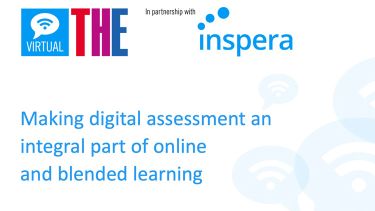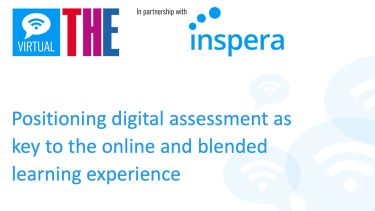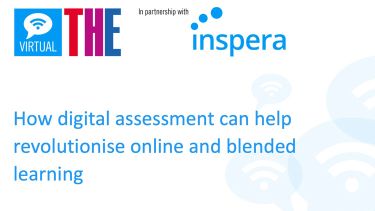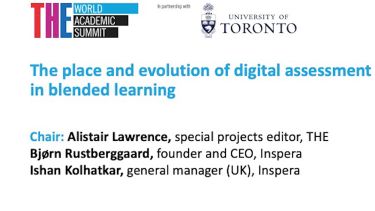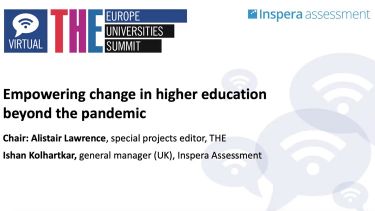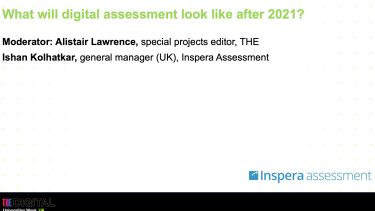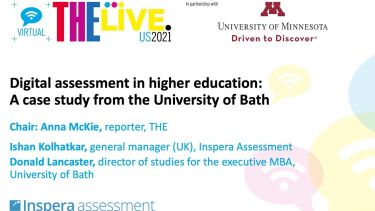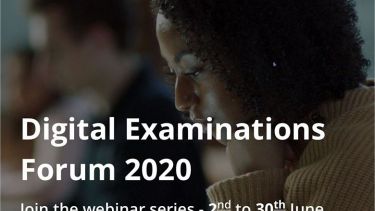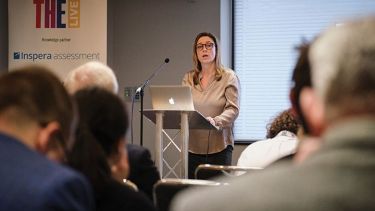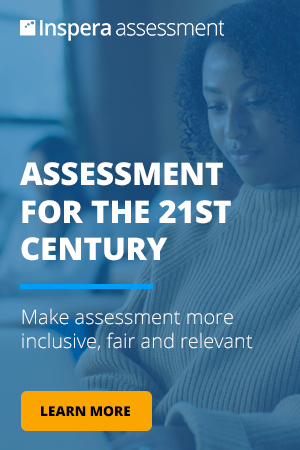Universities will play a crucial civic role in helping students find work after the pandemic. Online assessment is a key part of this, and UK institutions can learn from their Scandinavian counterparts
Online assessment has been a point of debate for some time among UK higher education institutions, but 2020 has brought it into sharp focus. At a recent THE Live UK session in conjunction with Inspera, Deveral Capps, dean of Leeds Law School at Leeds Beckett University, described how coronavirus means that universities are no longer taking baby steps when it comes to online assessment; we are now seeing a seismic shift.
As a law school, building confidence with regulatory authorities has been key. “We’d been making gradual shifts, perhaps one online exam for one module. This year we needed to reassure the Solicitors Regulation Authority that we were making sure that students were taking as robust an assessment process as they would if they were on campus,” said Capps.
Scandinavian countries were early adopters of digital assessments, according to Sofie Emmertsen, executive education consultant at Inspera. “In 2014, Norway moved all of its final exams online, so a lot of universities have been on this journey for a long time,” she explained. The Universities of Oslo and Agder, with which Inspera piloted its remote assessment platform, have reached 100 per cent digitalisation and have no plans to go back to paper-based assessments.
Magnus Nerheim, edtech project manager at the UiB learning lab at the University of Bergen in Denmark, said remote teaching and assessment have gotten “under our skin” since the pandemic hit and will be a permanent feature even as the student body returns to face-to-face lessons in some form.
The trajectory for online assessment in the UK has been slower due to challenges such as students lacking access to devices or a reliable internet connection, as well as perceptions that digital proctoring could be subject to abuse. “A lot of institutions have one foot in the past when they should really make sure they have one foot in the future,” said Capps, pointing to a survey by Jisc showing that just 34 per cent of staff were offered regular opportunities to develop their digital skills and only 15 per cent were given the time to gain that support.
As the UK government looks to offer retraining opportunities for those who have lost work during the pandemic, universities will increasingly provide shorter, more vocationally focused courses. Digital assessment will be needed to complement that shift, Capps added.
Nerheim stressed the importance of staff and students feeling comfortable with this change in order for it to be successful. “From going through a long implementation process, we have had the time to gradually implement and not force anyone to make changes,” he said. “We added systems so people knew which buttons to press and got a sense of comfort, to understand that the assessment is appropriate and there is no cheating. Then we start to look at whether assessment is authentic and aligned with learning outcomes and teaching – a catalyst for educational development as a whole.” A recent survey of the University of Bergen’s staff found that 93 per cent felt they had the necessary digital competencies.
Emmertsen said the pandemic had “laid a baseline” for online assessment, which the UK could build upon as universities widened access and diversified their course offerings. Capps added that increased digital learning meant UK institutions could not only broaden opportunities for international students but also help to build local or industry-focused partnerships and create a more level playing field. “There have been some silver linings to Covid in an acceptance that online invigilation can be as good, if not better, than being in a large exam room with 300 people,” Capps said. “If you shift access to the curriculum online, you get a huge bump in engagement and universities will be encouraged to do a lot more with local businesses and government, creating opportunities from within.”
The entire session is available above and on the THE YouTube channel. You can also access all of the THE Live UK material here.
Find out more about Inspera.



